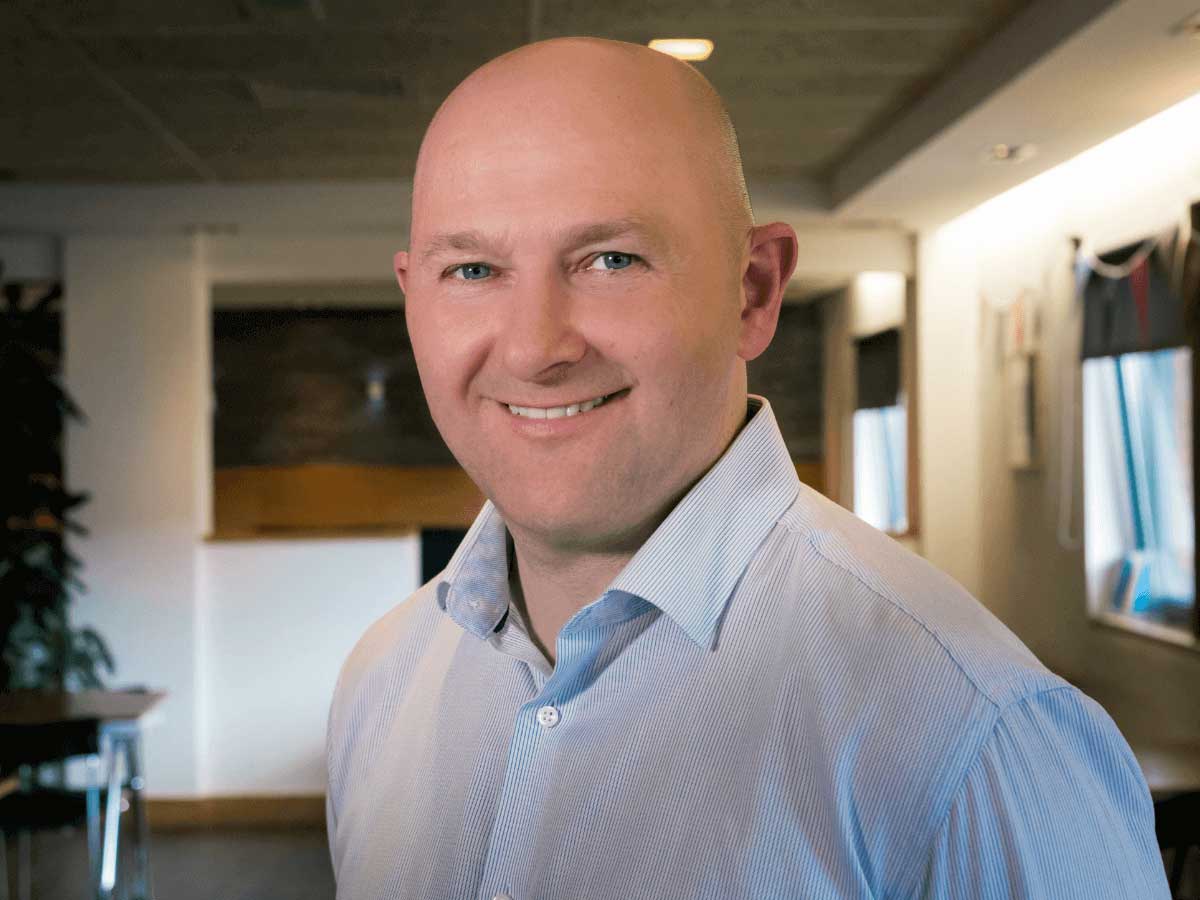
Imagine this—you have an interview for a senior management, senior leader or senior executive level position that's perfect for you.
It could be the career defining role you’ve been waiting for—the promotion that could make all the difference.
You think you are the best candidate in the race, with the right experience, in the right place, at the right time.
But it doesn’t always work out the way you hoped.
People think that being the best candidate means you automatically get the promotion.
Unfortunately, that’s not the way it works.
To be successful in a senior or executive interview, you need to be the candidate who is best prepared and the most memorable.
The better prepared you are, the higher your success rate
Senior and managerial positions require different sets of qualifications.
- Firstly, a more in-depth interview process is called for.
- The HR person is much more careful about the potential hire because the stakes are higher.
- There are generally several elements to a senior level interview, sometimes with different people across the company.
- You have to be prepared for a rigorous examination of your experience and qualifications.
Don’t let that scare you.
I am going to give you 5 valuable insights to help you prepare and understand what you need to do to get the senior position you want. I have helped people prepare for interview and succeed with a senior job search - even when the odds were against them.
Here’s what I have found over the past 20 years helping people get senior and managerial positions.
1. Clear your schedule
Give this opportunity the time it deserves.
Clear your schedule, as much as possible, because you need time to prepare.
I have been involved with senior job interview preparation many times and there’s nothing as bad as an underprepared candidate. A skilled interviewer can tell in the first five minutes if the candidate is prepared or not.
The old saying runs true—fail to prepare, prepare to fail.
Make this promotion process your top priority
Most people underestimate the amount of time required to prepare.
- Take time out of the office and away from distractions.
- Get away from people and projects that take up your precious time and concentration.
- Book off chunks of time to work on your application, interview questions, presentation slide deck, research and cover letter.
Take the time to be FULLY prepared to maximize your interview performance.
Treat this as your window of opportunity.
2. Give them great reasons to hire you
Understand that there may be 3, 4 or many more candidates in the process.
> What are you going to do to stand out from the crowd?
> What are you offering that makes you a MUST hire?
You want the hiring managers to finish the hiring process with a FEAR OF MISSING OUT mindset.
You want them thinking 'if we don’t hire this person, our competitors will hire them and we will miss out.'
Here’s some ideas to help you stand out during the interview
- What is your signature story?
- What is your value-added offering?
- What makes you valuable to this company?
- What is your vision for this position? Another version of this is “what is your first 100 days plan"?
- What do you bring to the table that makes you the standout candidate?
3. Follow the interview guidelines
If you are filling out an application form for the job, its likely the questions are competency-based. A competency-based question has a very specific way of being interpreted. If you don’t answer the question completely, your answer may be rejected.
Stick to the STAR method
The STAR method is a method you can use to answer questions by laying out the Situation, Task, Action, and Result.
- Situation: Set the scene and the situation for the example.
- Task: Describe what your role was in that situation.
- Action: Explain what steps you took and keep the focus on what you did.
- Result: What did you accomplish? What outcomes did you achieve?
The HR person interviewing you will be looking for answers they can rate, which means your answer must be in the past.
- Tell them when you did the project or initiative.
- Give them the specific example with details.
The stronger the answer, the higher the rating.
You need to produce strong, ratable answers.
Even senior people don’t take the time to give their best answers. This is where help makes a big difference. A person with experience can quickly tell you what’s good, what’s bad and more importantly how to improve your answers.
And like an exam, you might have answered 7 questions perfectly but didn’t answer the other 3 questions right. If you answered all 10 right, you would get higher marks overall.
From my experience, the best preparation is to write out competency-based answers to what has been specified on the job specifications.
These answers give you a sense of confidence and put you one step ahead of your competitors.
Stick to the STAR rules of answering and pick your strongest answers.
4. A presentation can make or break you
There is a growing trend where senior candidates are asked to do a 10-minute presentation.
The best way to approach a presentation is to see it as an opportunity to confidently emphasize your talents and experience. But be careful.
The presentation is both a minefield and a goldmine.
- It is a minefield because if you mess up your presentation, it hinders your chances of getting the position.
- It is a goldmine because its a chance to make a great impression and stand out from the other candidates.
Mistakes to avoid
Don't go over the time limit if there is a time guideline.
Some people are sticklers when it comes to time and it can really annoy them if you don’t take that seriously. That creates a bad first impression.
Another mistake is to rush through a presentation. For example, you prepare a 12-15 minute presentation and rush it to meet a 10 minute guideline by talking quickly.
The only thing worse is for the presenter to be stopped mid-presentation. This is bad for two reasons:
- It shows you didn’t know your own presentation timing which comes across as sloppy.
- It annoys the interviewers and tells them you are not fully prepared.
The implication here is that you can’t do what you have been asked to do for a simple presentation. That reflects poorly on what you might do on more important and bigger projects. It leaves a question mark in the interviewer’s mind and that’s never a good thing.
Make the most of the opportunity
The presentation is an opportunity to impress the interviewer and elevate your standing.
Get your key messages across clearly, succinctly and confidently. Identify the characteristics that will help you stand out and show you are a great candidate for the position.
Leave them wanting more
Remember, a presentation is generally at the beginning of an interview. This is your first contact with your audience and they want to be wowed.
You might be candidate number 3 or 4 or 5 that day. More of the same or "death by powerpoint" is not what you are aiming for.
The best 10-minute presentation is a 7 minute presentation.
Less is more but still get the important messages across. When you finish your presentation, you want them wanting more.
Remind them again why they should hire you.
5. Be prepared for your blind-spots
An essential part of interview preparation is "knowing what you know" and "knowing what you don’t know".
Let me explain.
A good interviewer will see right through a shallow answer. For example, you get asked a standard question like:
- “What is your leadership style?”
And you talk about servant leadership and that your style is to help people. It may look great on paper and you are delighted (in your head) that you could use something from that MBA you earned.
What you have to plan for is that the person across the table might know a LOT more about that topic than you do.
They might say:
- “So you are a servant leader. What are the competencies or skills involved in that style of leadership? And can you give me some examples?”
Suddenly, your world is swirling and you are scrambling.
If I am involved in an interview for a senior position, I like to “rattle a cage” at some point.
I’ll ask a few tough questions and also delve deeper into some of the answers (like the servant leader example above).
- I am not necessarily looking for a perfect answer; a decent answer will do.
- What I AM looking for is to find out who the "real" you is.
I am looking at your responses under pressure and listening for the authentic you.
Understanding yourself, your strengths and your blind-spots is key
If you understand yourself well, you will handle it when the pressure is cranked up—and at some point it WILL be cranked up.
- A solid in-depth understanding of who you are and what you bring to the table is vital.
- It goes back to you knowing your values, your vision and your own motivations.
- The better the answer, the more credible you appear to the interviewer.
Your answers need to be real, have depth and be appropriate for a senior level candidate. When you know yourself better, answering these questions becomes a lot easier.
When I prepare senior managers and executives for interview, I work on understanding their skills, personality, talents, values, leadership style and experience. Identifying potential blind-spots is an essential part of the process.
The less blind-spots you have going into an interview, the better.
It gives you greater confidence knowing you have a pocketful of prepared answers that will cover most tricky questions. That all comes from you knowing yourself well and eliminating your blind-spots.
Conclusion
Senior level and executive positions require a level of experience and proven success in order to be considered as a viable candidate.
Preparation is key.
You must know about the company, their expectations for the position and the type of professional they have targeted.
Smart candidates prepare and practice extensively before the interview. You only get one chance to make a first impression.
When preparation meets opportunity, the sky’s the limit for the person looking for a chance to demonstrate why they are the perfect fit for the position.
Do you need help preparing for a senior interview ?
I work with Managers, Senior and C-suite Executives for both the public and private sector. My approach is tailored to each individual, with a focus on:
- identifying your unique value-added talents
- creating your signature story
- preparing answers
- working on blind-spots
- co-creating presentations and
- doing a number of mock interviews.
I take a maximum of 3 senior clients per month given the level of in-depth preparation and support required. Contact me at 087 9097675 or terry@terryobriencareers.com.


